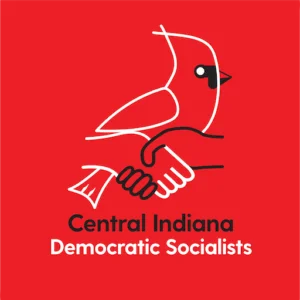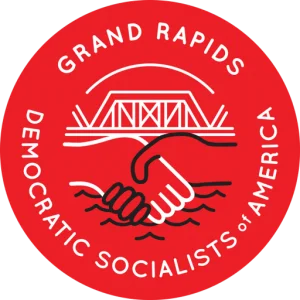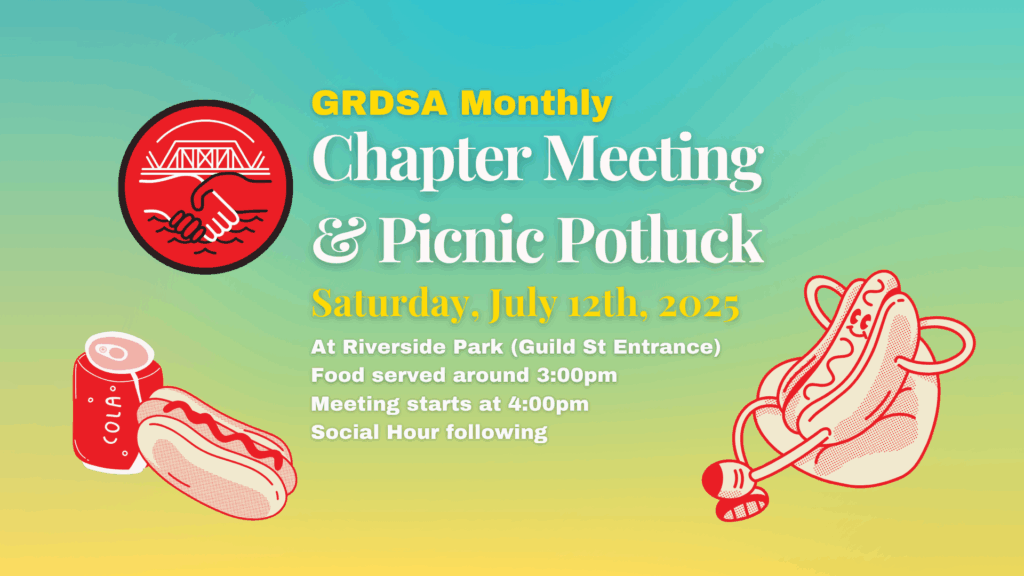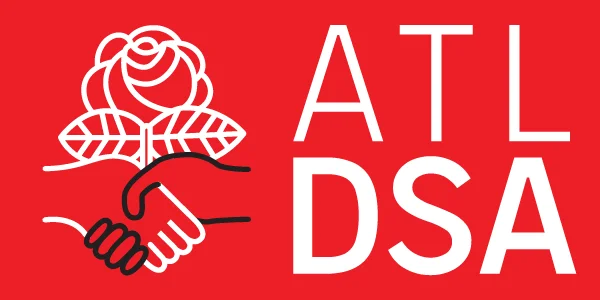




Dumped: How Charter Schools Cook Their Books, Choose Their Populations, and Profit


On The Value of Research




Red Catholic: A Life of Contradictions


July Chapter Meeting & Picnic Potluck
For our July Chapter Meeting, we’re having a Picnic Potluck! The Chapter will be providing hot dogs and beverages. We are asking folks to bring a side or dessert. (And camping chair if you have one.)
We’ve secured a backup location in case of bad weather. We’ll make that decision on Saturday. Please RSVP below to receive email updates.

We’re meeting in the evening of Saturday, July 12, at Riverside Park (near the Guild St entrance). Arrive at 3pm, the meeting will start around 4pm. After the meeting, we’ll keep hanging in the park. Feel free to bring a frisbee, hacky sack, or other park activities.
We encourage you to also attend Unionizing: Escalation & Recognition, a part of our Worker’s Power Teach-in series earlier in the day, 12-2pm. The teach-in will be at Fountain Street Church, Room 109.
NOTE: Because we’ll be meeting in the park, we will not be offering a hybrid option. This will be an in-person only meeting. If you cannot attend but want to share your opinions on the agenda items please email info@grdsa.org or post to the GRDSA slack.
The post July Chapter Meeting & Picnic Potluck appeared first on Grand Rapids Democratic Socialists of America.


Statement on the Public Service Commission Democratic Primary Runoff
There is a Democratic primary runoff for the Georgia Public Service Commission on July 15, 2025. If you were registered to vote in Georgia as of May 19, you are eligible to vote in this runoff, regardless of where in Georgia you are or whether you voted in the June primary, unless you voted in the Republican primary. We recommend voting for Peter Hubbard, as he is the most qualified candidate and is likely to seek reelection to the office next year, and then serve a full term. This recommendation is not an endorsement from Atlanta DSA.
What is the PSC?
Georgia’s five-member Public Service Commission (PSC) oversees utilities and has the power to approve or deny requested rate increases, among other things. Currently, all five members are Republicans, and they are quite friendly to Georgia Power and the other industries they regulate. After a voting rights lawsuit was thrown out, special elections for two seats were scheduled for this year. All PSC members are elected statewide.
The PSC is supposed to make sure that Georgia Power doesn’t automatically get everything they want. Yet time and time again, they have approved rate hikes exactly as requested by Georgia Power. We need a Public Service Commission that actually serves the public, rather than giving a rubber stamp to utilities. The PSC also regulates usage for high-energy facilities like data centers and handles some long-term policy planning. In particular, the PSC has repeatedly approved rate hikes to pay for the two new reactors at Plant Vogtle, even as the project’s estimated time and cost continued to balloon. The reactors are now operational, but the public would have benefitted from a PSC that was more willing to ask hard questions about Georgia Power’s plans early on.
Who is on the Ballot?
The July 15 runoff is between clean energy advocate Peter Hubbard and former Atlanta City Council member Keisha Sean Waites. Hubbard is the founder of the Georgia Center for Energy Solutions, a nonprofit that advocates for a transition to a zero-carbon future. Hubbard has served as an intervenor in PSC rate cases, meaning that he files and argues in front of the PSC for a position that otherwise would not have been represented. He says that he is running because the PSC has ignored the evidence presented in favor of “cleaner, cheaper, and more reliable renewable energy”.
Hubbard combines the policy expertise and willingness to challenge powerful interests that we need on the PSC. In contrast, Waites openly admits she is not familiar with utility policy. Furthermore, this is the seventh office Waites has run for in the last ten years, and she has resigned from both of the offices she was successfully elected to in order to seek a different office (and lost). We would like to see a Public Service Commissioner who can be relied on to stay in the office and continue holding Georgia Power accountable for many years. We therefore recommend voting for Peter Hubbard.
When and How Can I Vote?
There is a Democratic primary runoff on July 15 and a general election on November 4. Early voting must begin in all counties by July 7, but some counties will start early voting earlier; it ends on July 11. At the polls, be sure to request a Democratic ballot. (In most of Georgia, there will not be any other type of ballot available.)
Where Can I Vote?
Because of low turnout in the June primary, there may be a limited number of voting sites for the runoff. In all counties, early voting sites may be limited. In addition, counties where less than 1% of registered voters cast a Democratic ballot in June are authorized to open only a single polling place on Election Day for the runoff. County closures for the Atlanta Regional Commission area are as follows:
- Fulton, Cobb, DeKalb, Gwinnett, Clayton, Henry, Rockdale, Douglas, and Fayette: all Election Day polling places must be open on July 15
- Cherokee and Forsyth: only one polling place confirmed to be open in each county
- We have not examined whether any other counties have closures. If you do not live in one of the eleven counties listed above, we recommend checking with your county election office; it is unclear whether the Secretary of State will provide this information.

